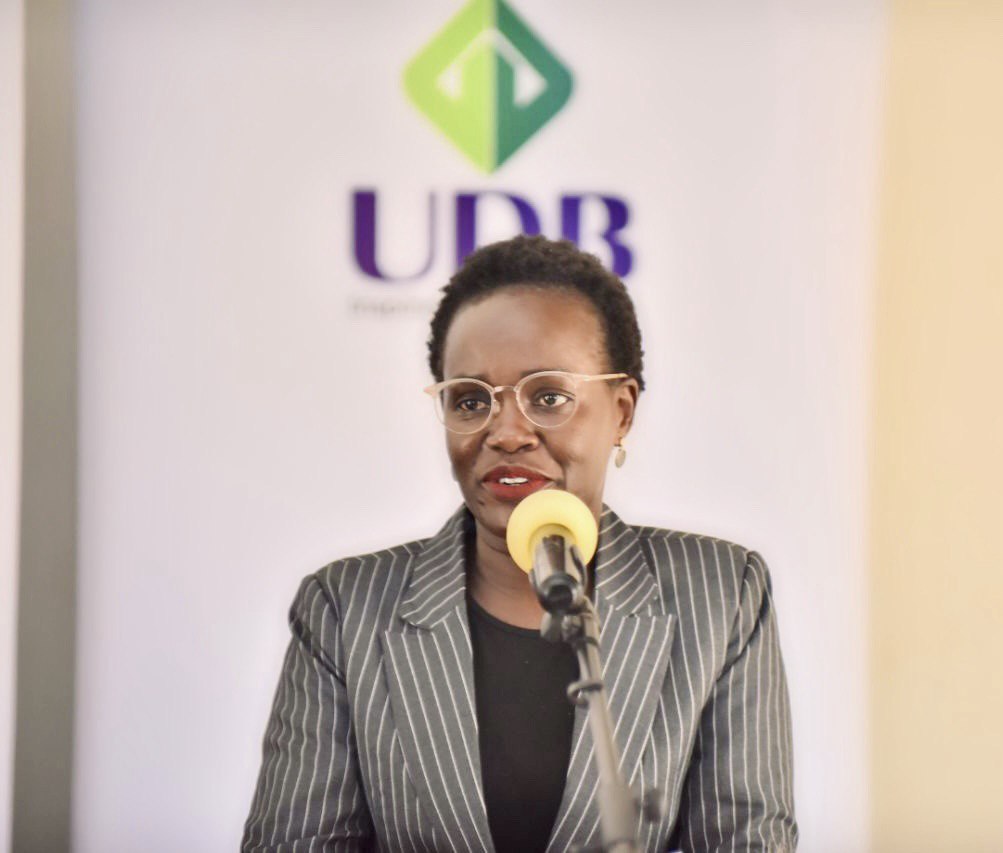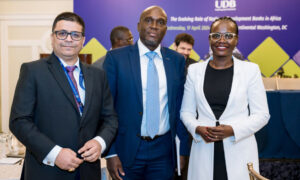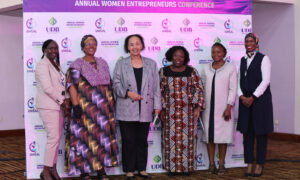
Uganda Development Bank (UDB) the country’s national development finance Institution has retained a National Long-term Rating of ‘AAA (uga)’ with a Stable Outlook, the highest attainable on Uganda’s national scale and reflects high support propensity by the government.
Fitch Ratings has also affirmed UDB’s Long-Term Issuer Default Rating (IDR) at ‘B+’ with a Negative Outlook and UDB’s Government Support Rating (GSR) at ‘b+’.
KEY RATING DRIVERS
The Government Support Rating (GSR) is equalized with Uganda’s sovereign rating, reflecting Fitch’s view of the authorities’ high propensity to provide support. The Negative Outlook on UDB’s Long-Term IDR mirrors that on Uganda’s sovereign rating,” the Fitch Rating report reads in part.
“As is usual for policy banks, Fitch does not assign a Viability Rating to UDB. This is because its operations are largely determined by its policy role.”
Fitch rating noted the following factors as key rating drivers:
High Propensity to Support: The Ugandan government has a high propensity to support UDB, in Fitch’s view, given the bank’s important policy role, 100% state ownership, as well as a significant share of state-guaranteed funding, and a strong record of capital injections.
Important Policy Role:
UDB is Uganda’s primary development bank. It lends on preferential terms to borrowers in strategically important sectors of the economy, in particular agriculture. UDB is predominantly funded by equity due to consistent government capital injections, in addition to fairly low-priced borrowings that are mostly government guaranteed.
Government-Owned: UDB is 100% government-owned through the Ministry of Finance, Planning and Economic Development.
Government Capital Contributions: UDB is well-capitalized, as indicated by a tangible leverage ratio of 81% as at end – 2022. UDB benefits from regular government capital contributions, which have totaled UGX829 billion (USD227 million) between 2019-2022 and does not pay dividends. Fitch expects government capital contributions to continue.
State Funding Guarantees: UDB’s non-equity funding comprises borrowings from development finance institutions and was almost entirely government-guaranteed as at end-2022. Liquid assets comfortably cover upcoming debt repayments.
High-Risk Appetite: UDB lends to higher-risk customers that are under-served by domestic commercial banks. It has high concentrations, with customers in the agriculture and agro-processing sectors representing 44% of gross loans as of end-2022.
UDB’s loan book has grown substantially in the past two years (2022: +54%; 2021: +53%) as the bank has sought to strengthen its development impact. Strong loan growth creates asset-quality seasoning risks.
Robust Profitability: UDB delivers robust profitability, with annual operating returns on assets averaging 4.5% in 2019-2022. Profitability is driven by a wide net interest margin that benefits from a low cost of funding, reflecting UDB’s large equity base and funding guarantees.
According to the UDB Managing Director, Ms. Patricia Ojangole, the Fitch Rating reflects the Bank’s strong funding and liquidity profile, healthy capitalization, and sound asset quality.
“This is an affirmation of the Bank’s strategic importance towards the socio-economic development of Uganda and confers investor confidence in the Bank. UDB recognizes the efforts of the Government, the Ministry of Finance, among other stakeholders who have been instrumental towards the Bank’s growth and the support that has been rendered over time,” she said.
ESG CONSIDERATIONS
UDB has an ESG Relevance Score of ‘4[+]’ for Human Rights, Community Relations, Access & Affordability due to its policy role, which promotes financing to under-banked and under-served sectors of the Ugandan economy. This has a positive impact on the government’s propensity to provide support and is therefore relevant to UDB’s ratings in conjunction with other factors.
“At UDB, we have exposure to services for underbanked and underserved communities: SME and community development programs; financial literacy programs among others which, in combination with other factors, positively impact our ESG rating.
According to Fitch Ratings, unless otherwise disclosed in this section, the highest level of ESG credit relevance is a score of ‘3’. A score of ‘3’ means ESG issues are credit-neutral or have only a minimal credit impact on the entity, either due to their nature or how they are being managed by the entity. Fitch’s ESG Relevance Scores are not inputs in the rating process; they are an observation of the relevance and materiality of ESG factors in the rating decision.
“UDB’s scores are similar to the majority of the banks Fitch rates globally, with the one exception being a ‘4’ for “Human rights, community relations, access & Affordability”. The rating committee decided that this factor has a positive impact on the credit rating, namely the Long-Term Issuer Default Rating, which is in turn driven by the Government Support Rating. The committee’s view was that UDB’s policy role, which includes servicing underbanked population in Uganda, positively affects the government’s propensity to provide support to the bank, which in turn has a positive influence on the Long-Term IDR. For comparison, a purely commercial bank would likely have this factor scored ‘2’,” the report by Fitch Ratings further reads.




























